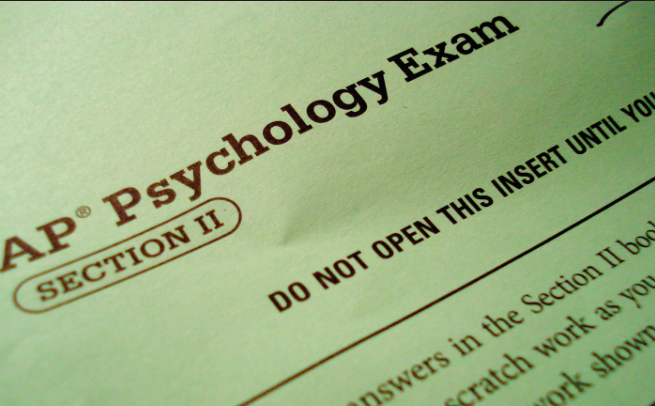Students begin preparation for upcoming AP exams
With the end of the school year quickly approaching, students and teachers across De Soto High School have begun preparing for Advanced Placement exams.
AP exams are held around the first week of May every year and are offered through the College Board, a national organization that provides tests for college preparation to sophomores, juniors and seniors in AP classes. Most exams are offered on a five-point scale, requiring a three, four or five to pass, and are in the form of multiple choice and essay questions.
“Advanced placement exams are a way of proving that you’re above a certain level in a college class. Most colleges give you credit for passing the AP exams,” said AP Language and Composition teacher Philip Hamilton. “Some, however, use it as placement, so if you do particularly well, you can skip your first whatever class, maybe your first math class, and be placed into a higher one automatically. But usually, most schools in the United States give you actual credit hours for the $95 or however much it is you pay [to take the exam].”
Students such as senior Gabby Mallozzi have found AP exams beneficial, especially in the instance of going out of state for college. Mallozzi has taken the AP language, AP chemistry and AP psychology exam.
“Taking the AP exams is a way for me to get college credit for my classes, as opposed to taking the classes through JCCC [College Now]. Since I’m going to college out of state, not all of JCCC’s credits are transferable, so taking the AP tests allows me to get credit for all my classes,” Mallozzi said.
In classes such as Hamilton’s APLAC course, students have been preparing for the AP exam since early February. However, Mallozzi and Hamilton both recommend preparing outside of class beginning several weeks in advance from the testing date.
“Don’t wait until the last minute. That’s the number one rule for taking AP tests. Start reviewing and studying weeks before the test so that you understand all the material that might be on the test,” Mallozzi said. “I would also recommend taking full-length practice tests, especially for the ones with timed essays. It helps you figure out how to manage your time.”
It is also recommended to take extra steps in making sure you are prepared the night before and morning of the test.
“One of the things that I think students shouldn’t do is cram … one of the things you don’t want to do is go into the exam too fatigued mentally. One other thing that I think is super important is that students make sure they are taking care of themselves emotionally, physically, mentally,” Hamilton said. “One of the things I would say is to make sure to eat healthy the day before, to eat a good, solid breakfast, to make sure to go to bed in a positive emotional state, so if there’s things that are likely to distract them or upset them, they should avoid those things. And try to make sure you’re in the right state of mind where you’re going to feel positive and successful.”



